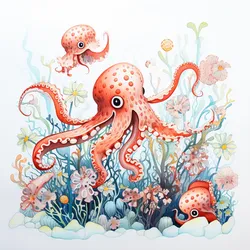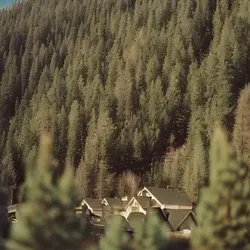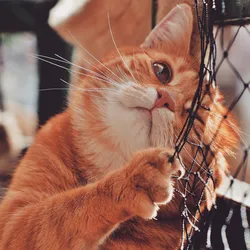
Level 1:
Scientists are smart people who explore things. They found a special place in the ocean. It’s where baby octopuses are born. There are only three of these places. Two are near Costa Rica, and one is by California. The scientists used a special vehicle to see the baby octopuses. Everyone was happy when they saw them. The scientists also found a new kind of octopus without ink. They said there’s a lot to learn about the ocean. We should protect it and discover more amazing things.
Level 2:
Scientists discovered a rare place in the ocean where baby octopuses are born. This special spot is found near Costa Rica and California. With the help of a special vehicle, the scientists observed the baby octopuses, and everyone was filled with joy. They also found a new kind of octopus without an ink sac. This amazing discovery shows that there’s still much to learn about the ocean. We must protect and explore it to uncover more wonders. Let’s continue to support scientific research and care for our marine habitats.
Full Story:
In a groundbreaking exploration of the ocean floor near Costa Rica, a team of researchers has stumbled upon an extraordinary find – an octopus nursery! Yes, you heard that right – a place where these mysterious creatures gather to hatch their precious eggs. Can you believe it? It’s like finding a hidden treasure in the depths of the sea!
This incredible discovery now brings the total count of known octopus nurseries in the world to a mere three. Two of these elusive spots are right here off the coast of Costa Rica, while the third is nestled off the shores of Monterey, California. It’s fascinating to think that such a rare phenomenon has remained hidden from us for so long.
Imagine the scene at the mission control room when the researchers, using their remotely operated vehicle, witnessed something truly magical – live baby octopuses emerging from their eggs! There were squeals of amazement, fingers pointing excitedly at screens, and jubilant claps and hugs. Who wouldn’t be thrilled to witness such a heartwarming sight?
But that’s not all. Hold onto your hats, folks, because it seems the scientists might have stumbled upon an entirely new species of octopus! Can you believe it? A species without an ink sac, part of the Muusoctopus family – a true marvel of evolution. This discovery alone is enough to ignite the curiosity of any ocean enthusiast!
Let’s not forget the icing on the cake – the confirmation that a nearby site called the Dorado Outcrop is, indeed, another octopus nursery. It turns out that scientists had glimpsed brooding octopuses there before, but they couldn’t find any developing embryos. They wondered if the conditions weren’t right for hatchlings to survive. However, this latest research trip has proven otherwise – the eggs hatch perfectly fine, even in the presence of hydrothermal vents! It just goes to show that Mother Nature has her own way of nurturing life in the depths.
Dr. Jyotika Virmani, the executive director of the Schmidt Ocean Institute, which generously funded this research, wisely points out that there is still so much to learn about our vast and mysterious ocean. It’s true, isn’t it? Despite all our technological advancements and scientific achievements, there are still hidden wonders waiting to be uncovered beneath the waves.
Just imagine what other secrets the ocean holds. What other rare creatures are waiting to be discovered? Perhaps there are more nurseries where marine life thrives, hidden in the nooks and crannies of the seafloor. What about other new species, lurking in the darkest corners of the ocean? The possibilities are boundless, and this recent discovery serves as a reminder of how much more we have to explore and learn.
It’s fascinating to think about the lives of these mysterious creatures. How do octopuses choose these nurseries? Is it something passed down through generations, a shared knowledge etched into their very being? And what makes these particular spots so special? Is it the temperature, the currents, or some other mysterious factor that draws them in?
We may not have all the answers just yet, but one thing is certain – this discovery underscores the importance of preserving and protecting our oceans. These incredible habitats are delicate ecosystems, and any disturbance to them could have far-reaching consequences for the creatures that call them home.
So, let’s celebrate this newfound knowledge and use it as motivation to delve deeper into the mysteries of our blue planet. Let’s support further research and exploration, so we can uncover more hidden treasures like this octopus nursery. Who knows what other wonders are waiting to be revealed?
In the end, it’s a humbling reminder that no matter how much we think we know about the world, there will always be surprises in store. And that’s the beauty of science – it allows us to peer into the unknown and unravel the enigmas of our natural world, one discovery at a time. So, here’s to the incredible octopus nursery off Costa Rica – a testament to the marvels that await us if we dare to venture into the deep blue unknown.
Questions:
Question: How many octopus nurseries are currently known to exist in the world?
Answer: There are three known octopus nurseries in the world, two off the coast of Costa Rica and one off the coast of Monterey, California.
Question: What was the scientists’ reaction when they saw the baby octopuses during their expedition?
Answer: The scientists in the mission control room were filled with excitement, pointing at screens, clapping, and hugging when they witnessed the live baby octopuses on the seafloor.
Question: What is the significance of the newly discovered species of octopus without an ink sac?
Answer: The newly discovered species of octopus without an ink sac is part of the Muusoctopus family, and it adds to the diversity of octopus species, showcasing the marvels of evolution.
Question: How did the research trip confirm the existence of an octopus nursery at the Dorado Outcrop site?
Answer: During the research trip, scientists observed hatchlings emerging from their eggs at the Dorado Outcrop site, proving that it is indeed an octopus nursery.
Question: Why is this discovery considered a reminder of the importance of ocean conservation?
Answer: The discovery of the rare octopus nursery highlights the need to preserve and protect our oceans as delicate ecosystems, ensuring the survival of unique marine life and fostering further exploration and understanding of our natural world.
Fill in the Blanks:
Expedition, curiosity, nursery, exploration, hidden, Nursery, octopus, marvels, mysterious, consequences, delicate, species, brooding, confirmation, motivation, support, vast, enigmas, enthusiast, researchers, Octopus, hatch
In a groundbreaking ________ of the ocean floor near Costa Rica, a team of ________ has stumbled upon an extraordinary find – an ________ ________!
Yes, you heard that right – a place where these ________ creatures gather to ________ their precious eggs.
It’s like finding a ________ treasure in the depths of the sea!
Hold onto your hats, folks, because it seems the scientists might have stumbled upon an entirely new ________ of octopus!
This discovery alone is enough to ignite the ________ of any ocean ________!
Let’s not forget the icing on the cake – the ________ that a nearby site called the Dorado Outcrop is, indeed, another octopus nursery.
It turns out that scientists had glimpsed ________ octopuses there before, but they couldn’t find any developing embryos.
Jyotika Virmani, the executive director of the Schmidt Ocean Institute, which generously funded this research, wisely points out that there is still so much to learn about our ________ and mysterious ocean.
These incredible habitats are ________ ecosystems, and any disturbance to them could have far-reaching ________ for the creatures that call them home.
So, let’s celebrate this newfound knowledge and use it as ________ to delve deeper into the mysteries of our blue planet.
Let’s ________ further research and exploration, so we can uncover more hidden treasures like this octopus nursery.
And that’s the beauty of science – it allows us to peer into the unknown and unravel the ________ of our natural world, one discovery at a time.
So, here’s to the incredible octopus nursery off Costa Rica – a **testament **to the ________ that await us if we dare to venture into the deep blue unknown.
Vocabulary:
Researchers: People who study and investigate specific topics to gain new knowledge or understanding.
Exploration: The act of searching for something in a careful and thorough way.
Octopus: A sea creature with a soft body, eight arms, and a distinct head, known for its intelligence and ability to change color and texture.
Nursery: A place where young animals, such as baby octopuses, are taken care of and protected until they are ready to leave.
Deep-sea: Relating to the parts of the ocean that are far below the surface and often unexplored.
Brooding: The act of keeping eggs warm and protected until they hatch.
Hatch: To come out of an egg after being kept warm and protected.
Expedition: A journey or trip undertaken for a specific purpose, such as exploration or research.
Hydrothermal vents: Openings on the ocean floor where hot, mineral-rich water comes out, often hosting unique ecosystems.
Species: A group of living organisms with similar characteristics that can interbreed and produce fertile offspring.
Ink sac: A part of some animals, like octopuses, that contains ink used for defense or escaping from predators.
Muusoctopus family: A particular group of octopus species with shared characteristics.
Confirmation: The act of verifying or establishing the truth of something.
Curiosity: A strong desire to know or learn more about something.
Enthusiast: A person who is very interested and passionate about a particular activity or subject.
Curious: Eager to know or learn something.
Nurture: To care for and encourage the growth and development of something.
Hidden: Not easily seen or noticed; concealed from view.
Vast: Extremely large or wide in area or scope.
Mysterious: Difficult to understand or explain; full of secrets or hidden qualities.
Nooks and crannies: Small, hidden or difficult-to-reach places.
Delicate: Fragile, easily damaged, or sensitive.
Ecosystem: A community of living organisms and their interactions with their environment.
Consequences: The results or effects of a particular action or situation.
Marvels: Amazing or wonderful things that provoke awe or admiration.
Preserve: To protect and maintain something in its original or existing state.
Support: To provide assistance, encouragement, or help.
Motivation: A reason or incentive that drives someone to take action or achieve a goal.
Enigmas: Puzzling or mysterious situations that are difficult to understand or explain.
Testament: Evidence or proof that supports a claim or idea.




